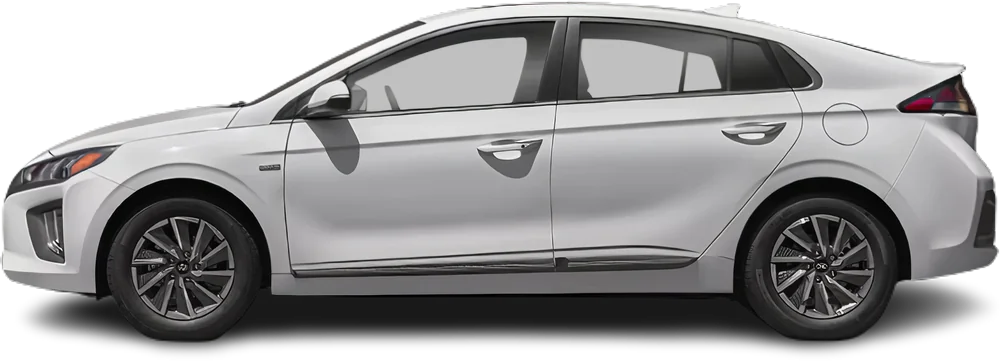Hyundai Ioniq Electric Gen 2 (2019-2022) supports both AC and DC charging.
The car is built on a 400 V architecture and can charge at up to 7.2 kW AC (only single-phase current, max 240 V) and 44 kW DC.
The 40.4 kWh battery (38.3 kWh usable) delivers a real-world range of 262 km per charge, with an average efficiency of 14.6 kWh/100 km (6.8 km per kWh).

Charging the Hyundai Ioniq Electric Gen 2 (2019-2022) from % to % using a outlet takes approximately h min. If you plug it in now, it'll be ready by .
This charging session adds kWh to the battery, resulting in an increase of km in range, assuming an average car efficiency of 14.6 kWh per 100 km. Put differently, you gain km of range per hour of charge.
The average charging power is around kilowatts. It's influenced by various factors, including:The estimated cost of this charging session is €, based on an electricity rate of € per kilowatt-hour.
Curious about how the Hyundai Ioniq Electric Gen 2 (2019-2022) stacks up against other electric cars when it comes to AC charging? Check out Green Cars Compare EV Rankings to see a side-by-side comparison.
Charging the Hyundai Ioniq Electric Gen 2 (2019-2022) from % to % using a station takes approximately h min. If you plug it in now, it'll be ready by .
This charging session adds kWh to the battery, resulting in an increase of km in range, assuming an average car efficiency of 14.6 kWh per 100 km. Put differently, you gain km of range per hour of charge.
The average charging power is around kilowatts. It's influenced by various factors, including:The estimated cost of this charging session is €, based on an electricity rate of € per kilowatt-hour.
Curious about how the Hyundai Ioniq Electric Gen 2 (2019-2022) stacks up against other electric cars when it comes to DC charging? Check out Green Cars Compare EV Rankings to see a side-by-side comparison.
Discussion